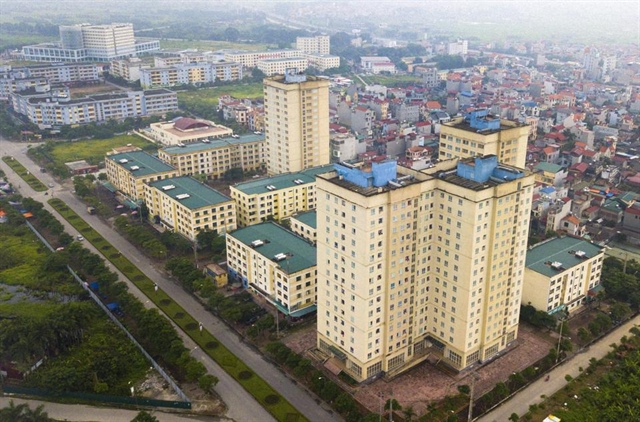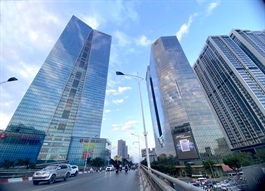New regulation in place to boost Vietnam's real estate market
New regulation in place to boost Vietnam's real estate market
A cross-functional team will be set up to work on improving the prospects of the local real estate market.
Prime Minister Pham Minh Chinh has issued a document on solving real estate market problems and improving its prospects.

An affordable housing project in Dong Anh District's Thang Long Industrial Park. Photo: Pham Hung/The Hanoi Times |
The document, numbered 178/TTg-CN, aligns with Resolution 33/NQ-CP dated March 11, 2023, which provides solutions to develop a healthy, transparent, and sustainable real estate sector.
Under the latest document, the Ministry of Construction, the Ministry of Treasury, the State Bank of Vietnam, and related agencies will set up a working group and work with developers to resolve existing problems and increase confidence in the property market.
The Prime Minister has asked the Ministry of Construction to finalize the plan to build one million affordable houses for low-income buyers and workers in industrial parks in 2021-2030.
He also requested the ministry to review and help local authorities and enterprises solve issues related to local real estate projects. For problems beyond its authority, the ministry must report to the Prime Minister for instructions.
Concerning the bond market, the Ministry of Finance must review and propose amendments to the regulatory documents to promote the issuance of corporate bonds through private placement and a public offering.
In addition, the Ministry of Finance is responsible for developing viable solutions to help companies restructure bond debt and yield payment terms following relevant regulations.
The ministry must continue to stabilize the operations of the stock and bond markets and consult with the Prime Minister to resolve the issues it cannot resolve within the scope of its authority.
In addition, the Prime Minister urges the State Bank of Vietnam and commercial banks to disburse a stimulus package of VND120 trillion (US$5.1 billion) as soon as possible to support developers and buyers to purchase houses in affordable housing projects at low-interest rates, as stated in Resolution 33/NQ-CP.
The State Bank of Vietnam and financial institutions need to make it easier for real estate investors, developers, and buyers to access the stimulus package. At the same time, local banks should provide loans to developers of high-quality and affordable projects, especially housing projects for low-income buyers and industrial park workers.
Banks and local lenders must review and classify real estate projects and consider ways to support projects that ensure the banking system's safety.
Financial institutions must also eliminate unnecessary expenses to increase lending capacity for economic activities, including home purchase and real estate development, and meet the capital needs of enterprises.
The Prime Minister also urges municipal and provincial authorities to approve their master plans for urban development, land use, and housing development soon. Local governments must also improve the speed of land evaluation to quickly approve the development of affordable housing projects, thus increasing the supply of affordable products for the property market.
Municipal and local governments are also urged to work together with the business community to solve the problems related to local real estate land. They should expedite reviewing current projects so developers can continue working on them.
The Premier also urges local and provincial governments to meet with businesses, listen to their complaints and opinions, and devise appropriate ways to solve problems related to their projects.
All municipal and provincial authorities will report their work to the Ministry of Construction and the Prime Minister every quarter, starting in April.
Regarding project developers and construction firms, the Prime Minister orders them to review their product prices to make them more affordable. They should also find ways to solve the problems related to projects built by issuing bonds, borrowing from banks, and financing from buyers.



























